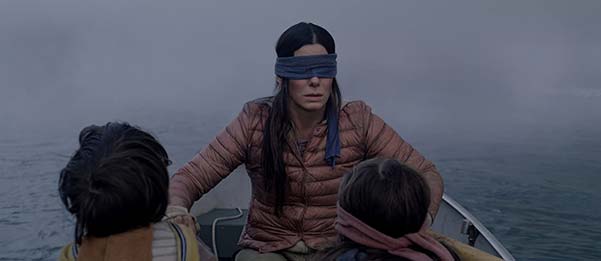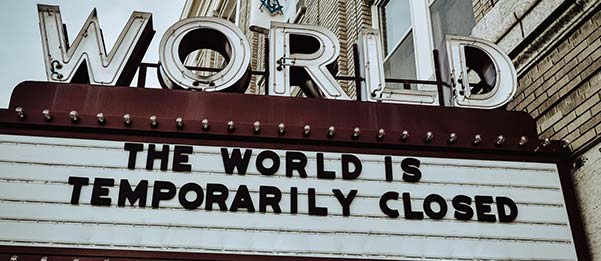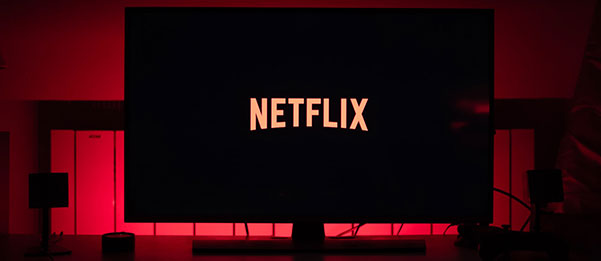Once upon a time, your local multiplex was the only place to catch the latest blockbuster. But in the last few years, streaming services such as Netflix and Amazon Prime have changed the game with their original productions and expensive acquisitions of projects distributors lost faith in. Typically though, big-budget releases could still be counted on to be shown first in cinemas.
Not anymore.
In April 2020, Universal made their $100 million Trolls: World Tour available for home rental on the same day as its intended theatrical opening. Of course, cinemas around the globe are shuttered due to the Coronavirus Pandemic. Still, this doesn’t diminish the importance of Universal’s decision to make Trolls: World Tour available On Demand. It’s a potentially seismic shift in the model of how distributors get their films out to the public once the crisis is over. But is it really a cause for concern for theatre chains?
To get a full picture of the decade-long battle between streaming and traditional exhibition, you have to go back to 2011 and the Ben Stiller comedy Tower Heist. Generally, there is what’s known as a ‘theatrical window’ for new films. It’s basically the gap between when it’s first shown in cinemas and when it’s released for home viewing. Tower Heist‘s distributor – yep, Universal – announced controversial plans to reduce the window from a few months to three weeks. Unsurprisingly, the proposition was met with ferocious backlash from cinema chains who threatened to boycott showing the film. Universal eventually caved and dropped the idea, but the seeds of streaming revolution had been planted.

Trolls: World Tour (2020) C: Dreamworks Animation LLC
Skip forward five years to 2016. Co-founder of file-sharing service Napster and former Facebook President Sean Parker sets out plans for a new video service called The Screening Room. Unlike its rivals, The Screening Room would offer 48-hour rentals of the latest movies on the same day they hit the cinema through a set-top box for $50 per film. While the specifics still aren’t clear, it would reportedly offer a substantial cut to theatre chains and distributors – as well as two free cinema tickets to their selected film.
Astonishingly, there already is a service that does this – Red Carpet Home Cinema. Launched in 2019 and billed as a ‘luxury service’, Red Carpet is available in every US state and grants two viewings of a new release in a 2 day period. But with films priced between $1500 and $3000, this is streaming for the financially Elite.
To the Average Joe’s like you and I, we’re more likely to get our content through a more affordable method such as Netflix and chances are even then you’re leeching a profile off a family member. It wasn’t until relatively recently that Netflix became a migraine-causer for exhibitors either. While it was an established digital entertainment force to be reckoned with in the early 2010s, the company only began an aggressive output of original content on their digital service from around 2015. Their first original film Beasts of No Nation was meant for release both theatrically and on their platform. In what is becoming repetitious to write, cinema chains still weren’t a fan of this model for distribution and a large number of them boycotted the release, with only small chain Curzon Cinemas showing the film in the UK. Unlike the Tower Heist situation from four years prior, Netflix stuck to their guns and made the film available to their at-the-time 70 million customers – a number which has more than doubled by 2020.

Annihilation (2018) C: Paramount Pictures
Netflix’s next big move came in 2017 after it partnered with Paramount Pictures to release the sci-fi thriller Annihilation. Following a poor test screening, internal conflicts arose between the film’s producers Scott Rudin and David Ellison, head of Skydance Productions. The pair had opposing views on how to proceed with changes to the film, with Ellison worried the film would be “too intellectual” for the general public, while Rudin defended the cut shown at the test screening. Not wanting to lose money on the project, producers went down the unconventional route of penning a Worldwide distribution deal with Netflix to cover a sizeable portion of the films budget. The streaming giant would then make the film available to select markets 17 days after its US debut. No prizes for guessing how cinema chains felt about this decision.
This wouldn’t be Netflix’s final dance with Paramount. In February 2018, the company made the surprise move of releasing The Cloverfield Paradox, the third entry in the low-budget-big-return Cloverfield franchise. Except this time, that ‘low’ budget of $5 million had reportedly ballooned to over $40 million with little hope of profiting through a theatrical release. The deal allegedly saw Netflix pay $50 million for the rights. Even though the film became one of the biggest bombs of 2018, the injection of Netflix’s cash threw Paramount a lifeline. It was becoming clear that streaming services were potential saviours of once-doomed projects – but its biggest move was yet to come.
In July 2018, it was revealed Warner Brothers had unloaded Mowgli: Legend of the Jungle,their $180 million (estimated) take on Rudyard Kipling’s The Jungle Book for an undisclosed amount. Unlike its previous acquisitions, Mowgli was, at one point, deemed a fully fledged tent pole cinematic release for Warner. The 11th hour sale came down to a number of factors, but most likely due to Disney having released their version of The Jungle Book only two years earlier, raking in an impressive $966 million. With its mammoth budget and darker tone, Mowgli looked destined to free-fall to a box office death, but once again Netflix were there to provide the first three letters of their name.

Birdbox (2018) C: Netflix
Regardless, the service has demonstrated to be more than simply the bargain bin of studio cast-offs. A rising number of top tier talent are turning to projects premiering on the app; Michael Bay (6 Underground), Brad Pitt (War Dogs), Stephen Soderbergh (The Laundromat) and Sandra Bullock (Birdbox) to name a few. The 2020 Oscar nominations were filled with streaming service offerings too, with the likes of The Irishman, Marriage Story and The Two Popes all earning nods in crucial categories.
It’s not just Netflix with their hat in the ring. Amazon’s Prime Video service has a respectable (and rapidly growing) number of original titles being added to their catalogue, Sky Movies and Disney have just launched their own streaming option, Disney+. The latter should be a real worry for exhibitors, with many titles already in production debuting on Disney+. The recent news from Disney boss Bob Iger that Kenneth Branagh’s $125 million Artemis Fowl is set to premiere there with “a few more” of the upcoming slate maybe ending up on the service won’t settle those jitters either.
But in March 2020, cinemas were dealt another blow that they were powerless to stop. Due to the deadly Coronavirus outbreak affecting the World, MGM delayed the release of the next James Bond entry No Time To Die. It would be the first of many films to have their premiere dates altered. The ninth instalment in the Fast & Furious series would hightail it out of 2020 completely, getting pushed by a whole year to April 2021. Horror sequel A Quiet Place 2, Marvel’s Black Widow, Sony’s Peter Rabbit 2 and Disney’s live-action Mulan would quickly follow suit and be pushed back. Some titles fell off the slate completely, most notably the eternally cursed X-Men spinoff New Mutants. By the mid-point of the month, there was barely any upcoming content for the foreseeable future and due to Government orders to help slow the spread of the disease, cinemas were required to temporarily close their doors.

Photo by Edwin Hooper on Unsplash
At the time of their closing, Universal had three films playing in cinemas: a modern take on The Invisible Man, gory satirical actioner The Hunt and period comedy-drama Emma. They were also expecting to release Trolls: World Tour, the sequel to 2016’s Trolls made under their Dreamworks Animation arm. On 16th March, the studio announced they would be making all these titles – including the hotly anticipated $100 million feature Trolls: World Tour – available to watch at home. Costing $19.99 (or £15.99 in the UK), those who bite would get the titles for a 48 viewing period. Two days after Universal’s industry-rattling decision, Sony made the same move by also putting their adaptation of comic book character Bloodshot up for rental.
In their official statement, Universal painted the move out to be one done purely with audience enjoyment in mind. While it surely plays a part, it would be naïve to believe this is the sole reason. Recuperation of their financial investment in these projects is likely to be the dominant factor, with the already-released titles only having played for an extremely short run in the UK before the closures. The call to make Trolls available, however, is a little trickier to understand.
History shows Universal had attempted to shorten the release window with Tower Heist, but were met with resistance. Now, through no fault of their own, the opposition has been disarmed. In an eye-opening interview with National Association of Theatre Owners chief John Fithian, he claims exhibitors were informed of their decision to simultaneously release Trolls theatrically and digitally a mere 20 minutes before the official announcement. He goes on to warn they will ‘not forget’ their treatment by Universal. What he means by this is unclear, but at this point in time cinemas aren’t in any position to be making threats. AMC Theatres, the largest cinema chain in the World was on the verge of bankrupcy before a last minute raising of $500 million in IOU’s.

Photo by Thibault Penin on Unsplash
The call to put Trolls on VOD will not have been one taken lightly, but executives must have had faith in its success for it to have been given the green light. It is absolutely uncharted territory for studios to have taken this route and could be seen as a pivotal moment in how consumers receive the product. On first glance, its $19.99 price tag seems steep for the short rental time, but weighed against the price of a family visiting the cinema along with the price of snacks, it doesn’t seem such a bad deal.
While it’s doubtful the financial returns for the film will be made public, Universal is reporting a record-setting weekend for a rental title. As time goes on, and the price drops, even at a loss it’s still money for the studio at a time where a steady flow of considerable income is scarce.
To answer the original question – should cinemas be worried about distributors going straight-to-streaming for new releases? Mark Zoradi, the CEO of Cinemark, doesn’t seem to think so. During a recent conference call, Zoradi said that 54% of revenue for studios comes from theatre chains. But again, this number is only relevant for pre-Corona; a drastically different World. On the other hand, they’re likely to want to get back to some semblance of normality as quickly as possible and a trip to the cinema with friends and loved ones is a sure-fire method to do that. With so many people in close proximity, however, it’s also a one-track route to a spiked increase of COVID-19 cases.
One thing is for certain: the cinema industry is in engaged in a battle bigger than any they’ve ever shown on their screens.
























